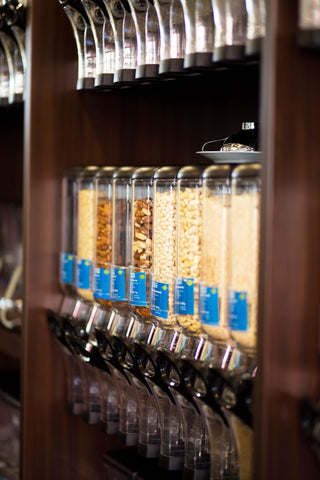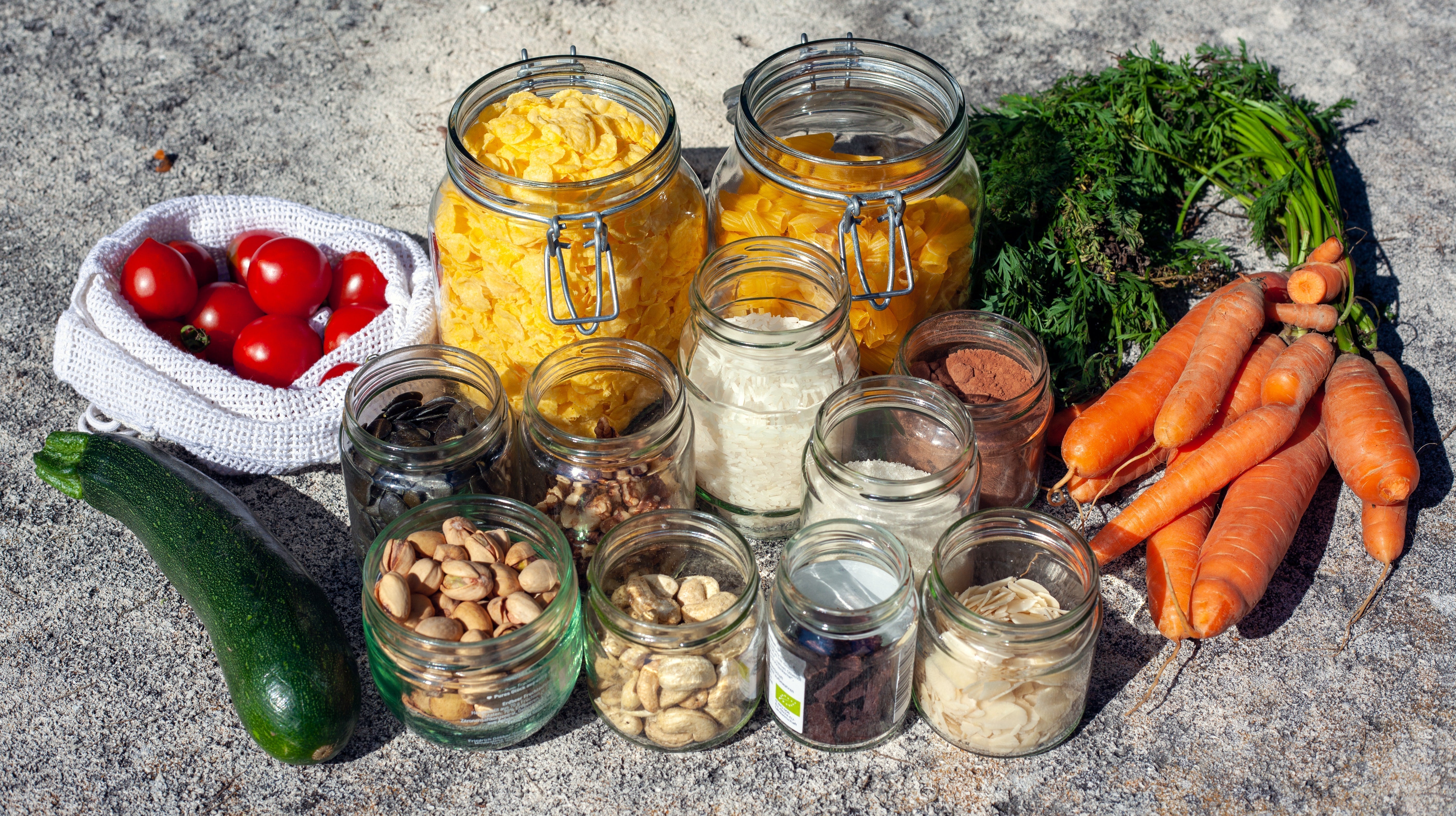
In the EU, 487kg of waste is produced per person per year. Of that 487kg, only 30% is recycled. The majority is buried in landfill sights or incinerated. Both landfill and incineration contribute to the environmental problems that we see today. Recycling is beneficial, but the recycling process still creates greenhouse gases and requires large amounts of water and energy.
The zero-waste movement combats waste, not with any new technology, but simply by minimising or eliminating waste from daily life. Perhaps that sounds impossible but going zero-waste is easy. You just need to think more wisely before making everyday purchases. Before you know it, zero-waste becomes a sustainable habit. Use these 30 top tips for going zero-waste to get you started.
Also Read: Why You Need A FLASKE Tumbler Cup For Your Summer Cocktails?
Out & About
A large part of your waste most likely comes from disposable items you buy while out and about. A takeaway coffee for the commute to work, a bottle of water from the vending machine, or a plastic bag to carry the groceries home in. Fortunately, it’s easy to reduce or eliminate waste when out and about.
1. Take a water bottle
It’s the simplest and most obvious of all zero-waste swaps. Instead of buying a disposable bottle every time you feel thirsty. Invest in one stainless steel thermos to take to work, to the gym, or on your travels. You can refill this bottle at city drinking fountains or from a water cooler. Putting a reusable water bottle into your day bag doesn’t just help to reduce waste, it also encourages you to drink more water.
2. Bring your coffee cup
Coffee cups are equally wasteful. Although some chain stores have switched to biodegradable takeaway cups, natural resources are still needed to continue producing these cups. A FLASKE Coffee Mug is a one-time purchase that, over the years, will save hundreds of disposable coffee cups from going to landfill.
Also Read: Branded Metal Water Bottles Will Boost Brand Image
3. Always bring a lunchbox and cutlery
Do you often get a takeaway on your way home? Bring your lunchbox to your favourite eateries and ask them to fill your box instead of taking food home in disposable containers. A hard-wearing and food-safe lunch box or reusable sandwich bags are perfect for taking your homemade lunch to work. Couple this with a set of bamboo cutlery and you’ll never need to eat from plastic again.
Also Read: The Best Water Bottle Material: Are Metal Bottles Safe To Drink From?

4. Never buy a plastic bag
Plastic bags litter streets, get consumed by wildlife and block waterways. Many end up getting fished out of the sea by The Ocean Cleanup or other environmental organisations. Next time you go shopping, remember to bring a convenient cotton tote and a few reusable produce bags.
5. Turn down plastic straws
When you order a drink, remember to say ‘no straw please’. It may feel awkward at first but don’t be embarrassed. You're doing your part to save the planet!
At the Office
It’s equally important to minimise waste while at the office. You can start with yourself, but also consider talking to your employer about zero-waste company practices.
6. Go paperless
How many of your office documents do you need to print? Could these documents be sent in electronic form instead? You’ll be surprised by how quickly your waste paper recycling decreases when you go paperless.
7. Recycled paper
When you do need to print something, make sure it’s printed on recycled or responsibly sourced paper, i.e. made with wood pulp that comes from a sustainable forest or an eco-conscious company.
8. Invest in responsible stationery
The ink in your pen will run out eventually but there’s no need to throw the whole thing out. Say goodbye to plastic and pick up a stainless-steel pen and mechanical pencil set. You can replace the ink cartridges and lead, not the entire pen.
Also Read: Reusable Water Bottles as Eco-Friendly Corporate Gifts
9. Give sustainable corporate gifts
Promotional products and corporate gifts are an important marketing tactic. If you want your customers and employees to know that your company does what it can to support the planet then give FLASKE branded water bottles, recycled notebooks, or products made from natural materials rather than plastic keyrings.
Food & Drinks
Drinking straws, plastic bottles, and takeaway containers are all designed to be single-use. Zero-waste grocery shopping can be a challenge too. Get around the issue with the following tips.
10. Buy soft drinks in aluminium cans or glass bottles
You don’t need to completely give up soft drinks to minimise your waste but think about the container it comes in. Aluminium and glass are 100% recyclable. Glass bottles are also suitable for craft projects or upcycling to flower vases or pots for kitchen utensils.
11. No plastic wrapped veggies
Ever get frustrated when you see oranges or bananas in plastic? As if they don’t have their natural packaging. From now on, only buy loose fruits and vegetables and take them home in your produce bags.
Also Read: Personalized Insulated Coffee Mugs for Christmas

12. Source a zero-waste store
Zero-waste stores are gaining popularity and they're common in many cities. At these stores, you bring your reusable container, fill it and weigh it. No disposable containers, plastic or otherwise.
13. Find your farmers market
Food is often sold in plastic packaging because it extends its shelf life. If you're struggling to find packaging-free food produce in your supermarket, try sourcing a local farmers market instead.
14. Eat out instead of getting takeaway
A takeaway is tempting when you don’t feel like cooking, but if you eat your meal out there’s no need for disposable takeaway boxes.
Also Read: 10 Sustainable Secret Santa Gifts That Will Surprise and Delight
Kitchen & Home Dining
Once you’ve bought plastic-free groceries and brought them home in a reusable shopping bag, the next step is minimising your cooking and dining waste.
15. No more paper napkins
Cloth napkins are an elegant zero-waste addition to your dining table. You can purchase a pack from a store or, better still, upcycle old bed linen or towels.
16. Swap cling film for beeswax wrap
Beeswax wrap is an eco-friendly alternative to cling film or aluminium foil. Use it to wrap your leftover Vegan dinner or take your lunch to work.
Also Read: Promote Your Brand with Custom Water Bottles

17. Ditch tea bags and coffee filters
You might be surprised to learn that many teabags contain plastic. If you own a French Press or reusable filter you can stop buying disposable coffee filters and experiment with loose leaf teas.
18. Learn how to store leftover foods
Minimising food waste is just as important as minimising plastic and other waste. Leftovers can be stored in food-safe food pots, eaten the following day or safely stored in the freezer for weeks.
19. Start composting
Once you get the hang of living a zero-waste lifestyle you’ll find that most of your waste comes from fruit and vegetable peelings. This waste can be composted and used to grow new veggies!
20. Don’t use trash bags
If you’re living zero-waste then you won’t have much-wet waste. Vegetable peels or food waste can go into your compost heap or to the nearest composting facility. Dry waste can go directly into your bin. There’s no need for bin liners.
In the Bathroom
Bathroom cleaners and hygiene products are usually sold in plastic containers. Many other products are disposable or single-use but you can make some simple swaps for a zero-waste bathroom.
21. Switch plastic for bamboo
Bamboo is a natural and sustainable material. Switch your plastic toothbrush and hairbrush for bamboo brushes. These are more environmentally-friendly to produce and biodegradable too.

22. No more disposable razors
How much money do you spend each year on disposable razors? And how much trash does that produce? Did you know that you can save money and become more sustainable by purchasing a stainless-steel razor? This will last a lifetime and you’ll only need to replace the blades.
23. Solid soaps and cosmetics
My bathroom used to be full of plastic bottles. One for each type of hygiene product. I’ve since exchanged my bottled shampoo, shower gel, and other liquid products for solid bars. Toothpaste powders or chewable tabs can replace a non-recyclable tube of toothpaste and solid deodorants, make-up, and even sunscreen bars are readily available.
24. Minimise cleaning products
One bottle of a multi-purpose cleaning product produces less waste than multiple small bottles. Buy the largest bottle so there's less waste. You can keep old cleaning bottles and refill them from the large bottle.
25. Plastic-free cleaning utensils
Cleaning utensils made from natural materials are less harmful to the environment than plastic. Micro-fibre cloths are very popular but with each wash, they release tiny plastic fibres into the water. Plastic toilet brushes, sponges, and scrubbing brushes do the same.
26. For the ladies
Ladies, it’s time to ditch disposable menstrual products. Cups, absorbent underwear, and bamboo liners are just as easy to use and last for years.
Simple Lifestyle Changes
Some of the most effective zero-waste swaps require a shift in your spending and consumption habits. Buy less, use less, and think twice before buying.
27. Buy products that are built to last
These days many electronics, clothes and other items are cheap to buy but need to be replaced often. If you can, save up and buy better quality products that will last for years or even for life. When something does break, try to repair it before replacing.
28. Share books
Books are made to be read, not just stored. Once you’ve finished your book, pass it on to someone else or swap it in a book share. Alternatively, make use of the local library, buy second-hand books, or download eBooks instead of buying a physical book.
29. Buy second-hand clothes
Shop at second-hand stores, seek out a clothes swap, or buy second-hand clothes online. You can resell clothes that you no longer need or donate them to a charity shop. Try upcycling clothes that are not wearable any more.
30. Spend money on experiences instead of things
Consider taking your family or friends out for dinner instead of giving a physical gift. A tailored experience will be twice as memorable as a shop-bought gift. Likewise, save up for a zero-waste vacation or a spa day instead of splashing out on a new bag or clothes.
Adopting a zero-waste lifestyle won’t happen overnight. You’ll need a bit of time for these simple waste-free swaps to become habits. I hope these 30 tips for going zero-waste will help to kick start your journey to a sustainable life.



